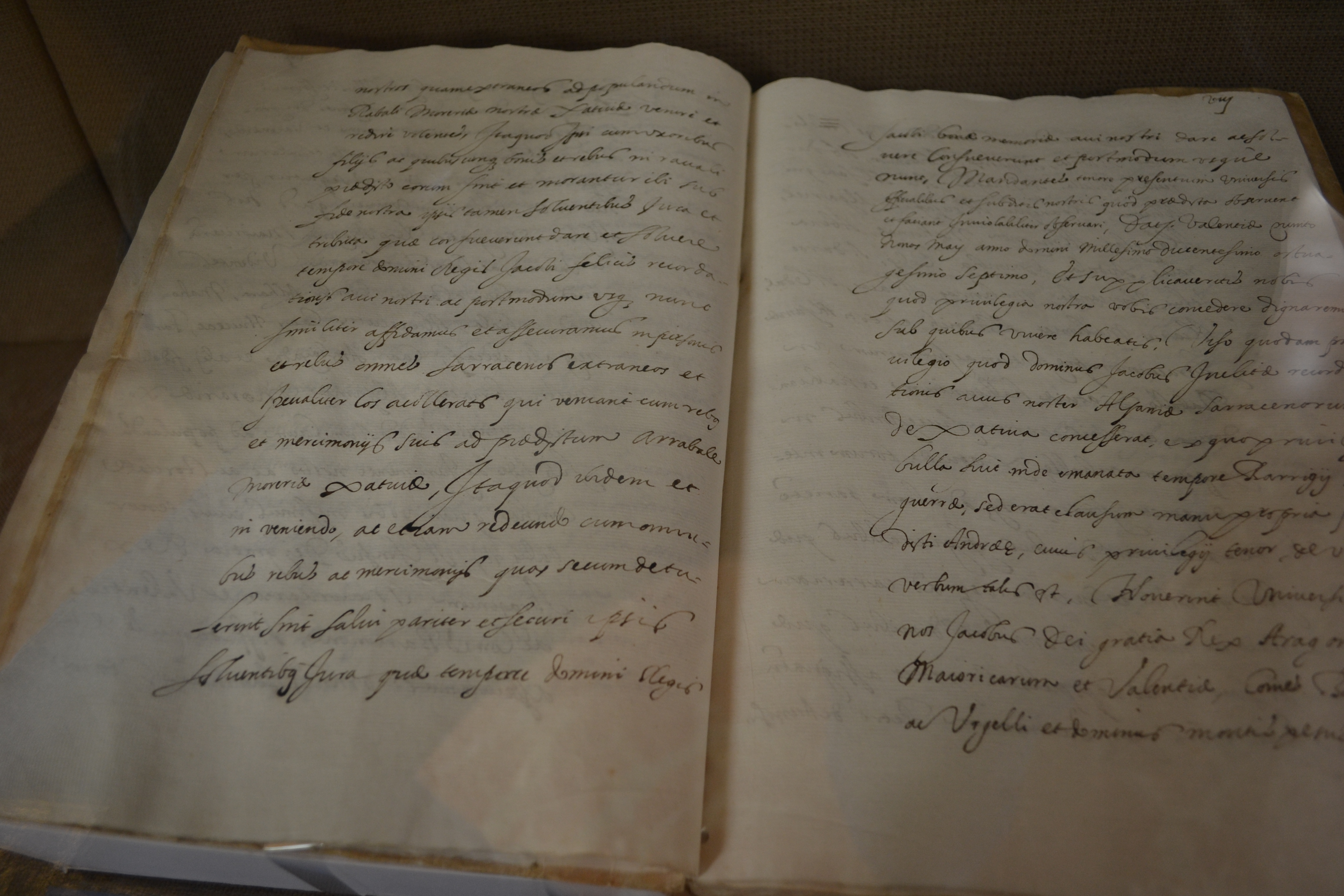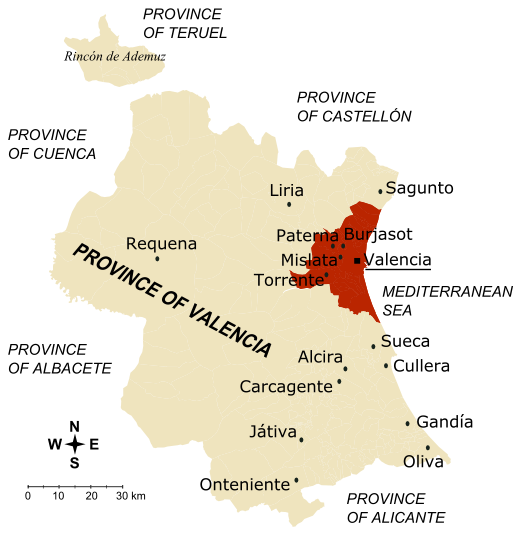|
Birthplace Of Pope Alexander VI
The natal house of the Pope Alexander VI is located in Xàtiva (Valencia, Spain). It is a small urban house, where the Pope Alexander VI was born and lived in the Kingdom of Valencia, Spain. According to the tradition, at the number 5 of the old square of ''Aldomar'', currently Alexander VI Square, was the birthplace of Rodrigo de Borja. From the original house where Alexander VI was born is preserved the door façade. See also * Route of the Borgias The Route of the Borgias is a cultural route, that includes sites associated with the Borja or ''Borgia'', located in their native Valencian Community, Spain. The marketing of the route was inaugurated in 2007.Source: ABCPaseo por la his ... References External links * Pope Alexander VI Buildings and structures in the Valencian Community Route of the Borgias Alexander VI, Pope Xàtiva {{Spain-struct-stub ... [...More Info...] [...Related Items...] OR: [Wikipedia] [Google] [Baidu] |
Xàtiva
Xàtiva (, es, Játiva ) is a town in eastern Spain, in the province of Valencia, on the right (western) bank of the river Albaida and at the junction of the Valencia–Murcia and Valencia Albacete railways. It is located 25 km west of the Mediterranean Sea. During the Al-Andalus Islamic era, Arabs brought the technology to manufacture paper to Xàtiva. In the 12th century, Xàtiva was known for its schools, education, and learning circles. Islamic scholar Abu Ishaq al-Shatibi's last name refers to Xàtiva where he lived and died. After the Reconquista by Northern Christian kingdoms and the following Christian repopulation, the city became the cradle of one of the most powerful and controversial families of the Renaissance, the House of Borgia, which produced Popes like Callixtus III (Alfonso de Borgia) and Alexander VI (Rodrigo de Borgia). History Xàtiva (''Saetabis'' in Latin) was famous in Roman times for its linen fabrics, mentioned by the Latin poets Ovid and C ... [...More Info...] [...Related Items...] OR: [Wikipedia] [Google] [Baidu] |
Valencian Community
The Valencian Community ( ca-valencia, Comunitat Valenciana, es, Comunidad Valenciana) is an autonomous community of Spain. It is the fourth most populous Spanish autonomous community after Andalusia, Catalonia and the Community of Madrid with more than five million inhabitants.Instituto Nacional de Estadística, Madrid, 2020. Its homonymous capital Valencia is the third largest city and metropolitan area in Spain. It is located along the Mediterranean coast on the east side of the Iberian Peninsula. It borders with Catalonia to the north, Aragon and Castilla–La Mancha to the west, and Murcia to the south, and the Balearic Islands are to its east. The Valencian Community consists of three provinces which are Castellón, Valencia and Alicante. According to Valencia's Statute of Autonomy, the Valencian people are a ''nationality''. Their origins date back to the 1238 Aragonese conquest of the Taifa of Valencia. The newly-founded Kingdom of Valencia enjoyed its own legal entit ... [...More Info...] [...Related Items...] OR: [Wikipedia] [Google] [Baidu] |
Valencian Barroque
Valencian () or Valencian language () is the official, historical and traditional name used in the Valencian Community (Spain), and unofficially in the El Carche comarca in Murcia (Spain), to refer to the Romance language also known as Catalan.«Otra sentencia equipara valenciano y catalán en las oposiciones, y ya van 13.» ''20 minutos'', 7 January 2008.Decreto 84/2008, de 6 de junio, ... [...More Info...] [...Related Items...] OR: [Wikipedia] [Google] [Baidu] |
Province Of Valencia
Valencia ( ca-valencia, València) is a province of Spain, in the central part of the autonomous Valencian Community. Of the province's over 2.5 million people (2018), one-third live in the capital, Valencia, which is also the capital of the autonomous community and the 3rd biggest city in Spain, with a metropolitan area of 2,522,383 people it is also one of the most populated cities of Southern Europe.http://appsso.eurostat.ec.europa.eu/nui/show.do?dataset=met_pjanaggr3&lang=en There are 265 municipalities in the province. History Although the Spanish Constitution of 1812 loosely created the province of València, a stable administrative entity does not arise until the territorial division of Spain in 1833, remaining today without major changes. The Provincial Council of Valencia dates from that period. After the Valencian Statute of Autonomy of 1982, the province became part of the Valencian Community. Valencian and Spanish are the official languages. Geography It is borde ... [...More Info...] [...Related Items...] OR: [Wikipedia] [Google] [Baidu] |
Spain
, image_flag = Bandera de España.svg , image_coat = Escudo de España (mazonado).svg , national_motto = ''Plus ultra'' (Latin)(English: "Further Beyond") , national_anthem = (English: "Royal March") , image_map = , map_caption = , image_map2 = , capital = Madrid , coordinates = , largest_city = Madrid , languages_type = Official language , languages = Spanish language, Spanish , ethnic_groups = , ethnic_groups_year = , ethnic_groups_ref = , religion = , religion_ref = , religion_year = 2020 , demonym = , government_type = Unitary state, Unitary Parliamentary system, parliamentary constitutional monarchy , leader_title1 = Monarchy of Spain, Monarch , leader_name1 = Felipe VI , leader_title2 = Prime Minister of Spain ... [...More Info...] [...Related Items...] OR: [Wikipedia] [Google] [Baidu] |
Pope Alexander VI
Pope Alexander VI ( it, Alessandro VI, va, Alexandre VI, es, Alejandro VI; born Rodrigo de Borja; ca-valencia, Roderic Llançol i de Borja ; es, Rodrigo Lanzol y de Borja, lang ; 1431 – 18 August 1503) was head of the Catholic Church and ruler of the Papal States from 11 August 1492 until his death in 1503. Born into the prominent House of Borgia, Borgia family in Xàtiva under the Crown of Aragon (now Spain), Rodrigo studied law at the University of Bologna. He was ordained deacon and made a Cardinal (Catholic Church), cardinal in 1456 after the election of his uncle as Pope Callixtus III, and a year later he became Apostolic Chancery, vice-chancellor of the Catholic Church. He proceeded to serve in the Roman Curia, Curia under the next four popes, acquiring significant influence and wealth in the process. In 1492, Rodrigo was elected pope, taking the name Alexander VI. Alexander's Inter caetera, papal bulls of 1493 confirmed or reconfirmed the rights of the Spanis ... [...More Info...] [...Related Items...] OR: [Wikipedia] [Google] [Baidu] |
Kingdom Of Valencia
Kingdom commonly refers to: * A monarchy ruled by a king or queen * Kingdom (biology), a category in biological taxonomy Kingdom may also refer to: Arts and media Television * ''Kingdom'' (British TV series), a 2007 British television drama starring Stephen Fry * ''Kingdom'' (American TV series), a 2014 US television drama starring Frank Grillo * ''Kingdom'' (South Korean TV series), a 2019 South Korean television series *'' Kingdom: Legendary War'', a 2021 South Korean television series Music * Kingdom (group), a South Korean boy group * ''Kingdom'' (Koda Kumi album), 2008 * ''Kingdom'' (Bilal Hassani album), 2019 * ''Kingdom'' (Covenant Worship album), 2014 * ''Kingdoms'' (Life in Your Way album), 2011 * ''Kingdoms'' (Broadway album), 2009 * ''Kingdom'' (EP), a 1998 EP by Vader * "Kingdom" (Dave Gahan song), 2007 * "Kingdom" (Maverick City Music and Kirk Franklin song), 2022 * "Kingdom", a song by Battle Beast on their 2013 album '' Battle Beast'' * "Kingdom", a so ... [...More Info...] [...Related Items...] OR: [Wikipedia] [Google] [Baidu] |
Route Of The Borgias
The Route of the Borgias is a cultural route, that includes sites associated with the Borja or ''Borgia'', located in their native Valencian Community, Spain. The marketing of the route was inaugurated in 2007.Source: ABCPaseo por la historia de los Borja. The Borgias were a family of Aragonese origin, who settled in the Kingdom of Valencia, after its King James I of Aragon wrested control from Moorish rulers. In most translations, the family is known as the Borgia, the Italian way of transcribing the ''Borja'' surname from Valencian. The Popes Callixtus III and Alexander VI, Cesare Borgia and Lucrezia Borgia and Francis Borgia are the best-known figures of this lineage that originated in Canals and Xàtiva, and via Valencia came to Rome, then return to Valencia to refound the Duchy of Gandia. The route through the legacy of the Borgias has its beginning in the city of Gandia and ends in Valencia passing through various monuments and Valencian towns where the Borja left ... [...More Info...] [...Related Items...] OR: [Wikipedia] [Google] [Baidu] |
Buildings And Structures In The Valencian Community
A building, or edifice, is an enclosed structure with a roof and walls standing more or less permanently in one place, such as a house or factory (although there's also portable buildings). Buildings come in a variety of sizes, shapes, and functions, and have been adapted throughout history for a wide number of factors, from building materials available, to weather conditions, land prices, ground conditions, specific uses, prestige, and aesthetic reasons. To better understand the term ''building'' compare the list of nonbuilding structures. Buildings serve several societal needs – primarily as shelter from weather, security, living space, privacy, to store belongings, and to comfortably live and work. A building as a shelter represents a physical division of the human habitat (a place of comfort and safety) and the ''outside'' (a place that at times may be harsh and harmful). Ever since the first cave paintings, buildings have also become objects or canvasses of much artis ... [...More Info...] [...Related Items...] OR: [Wikipedia] [Google] [Baidu] |





